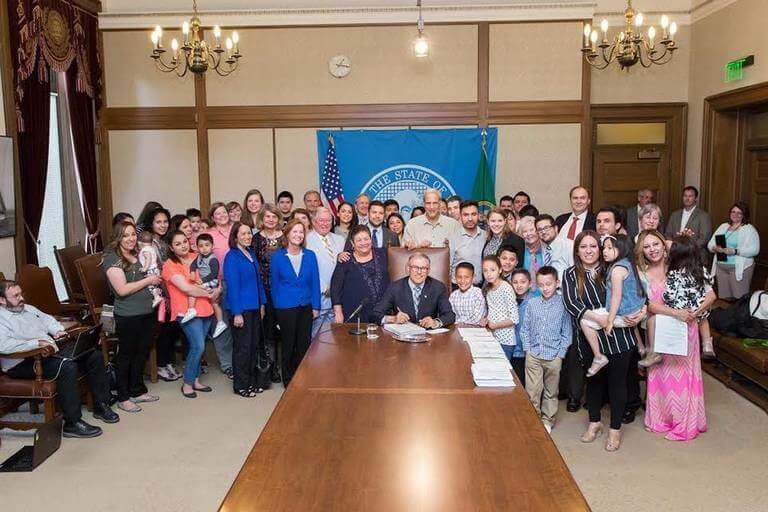Ricky's Law
Ricky’s Law, Recently Signed By Governor, Named For Former Othello Man
By Sara Schilling (Reprint: Tri-City Herald)
Ricky Garcia spent two years in a bad, bad way.
The Seattle man — who grew up in Othello and still has family in the Tri-Cities — was in and out of the emergency room, intensive care, psychiatric hospitalization.
The underlying cause? The reason he was, as his best friend Lauren Davis put it, “the walking dead” for all that time?
Substance abuse. Garcia’s primary drug of choice was alcohol, and he also found his way to heroin.
And there was very little Davis or anyone else could do to help him.
At that time, Washington law allowed for involuntary commitment for those in mental health crisis, but not for substance abuse.
So even someone as sick as Garcia would have to accept treatment, and he or she could walk away without a doctor’s OK.
But that’s changing now. Ricky’s law, named for Garcia, aims to create a unified involuntary commitment system for mental illness and substance abuse.
That means involuntary care will be an option for people who are a danger to themselves or others because of their addiction.
The bill also makes some other changes.
It passed the state House and Senate this session, and Gov. Jay Inslee signed it last week.
Garcia and Davis championed the bill.
“I don’t think it’s hit me yet. It’s really overwhelming. It’s a great feeling to accomplish something that will affect so many people,” said Garcia, who’s nearly four years clean and sober now.
Davis described the legislation as life-saving.
“A number of families who worked on the bill lost a child because this law did not exist. The fact that hopefully those phone calls will stop, that there won’t be any more families saying, ‘it’s too late for my loved one’” feels good, she said.
Garcia fought his way out of addiction, and he credits loved ones — especially Davis — for sticking with him.
He’s now thriving. He’s working full time, owns his own photography business and has plans to return to college.
He was studying engineering before addiction disrupted his life.
His message for families dealing with substance abuse is to hang in there.
“As hard as it is for them to keep going, just never give up,” he said. “The life of active addiction is a miserable existence. When one is left to themselves, it makes it that much harder to keep moving forward. What kept me moving forward was the fact my best friend never gave up.”
Garcia and Davis both were on hand for the bill signing, along with most of Garcia’s family.
Alejandra Gonzalez of Pasco was among them. She’s one of Garcia’s sisters, and she said his addiction was a roller coaster ride for the family.
“Mom used to cry to social workers, beg, (saying), ‘My son needs help.’ I remember holding him, taking him to the hospital,” Gonzalez said.
She’s proud of how far her brother has come, and of the new law. “It’s a big accomplishment” that will help many other families, she said.
Davis said it will make a difference. Mandatory treatment is proven to have equal or greater success rates than voluntary treatment, she said.
And the law provides hope, she said.
“It’s true that for people to be successful in their recovery, they have to want it,” Davis said. But when they’re as sick as Garcia was, they may feel like becoming clean is impossible.
“(This) can give people a chance to sober up, to have their neurotransmitters fire normally again, to work with a therapist, to get hope back,” she told the Herald. “Really, it’s about giving a chance to the people who have lost the belief that (they can get better).”
By Sara Schilling (Tri-County Herald)

ATTORNEY ADVERTISING – The information on this website is for general information purposes only. Nothing on this site should be taken as legal advice for any individual case or situation. This information is not intended to create, and receipt or viewing does not constitute an attorney-client relationship.